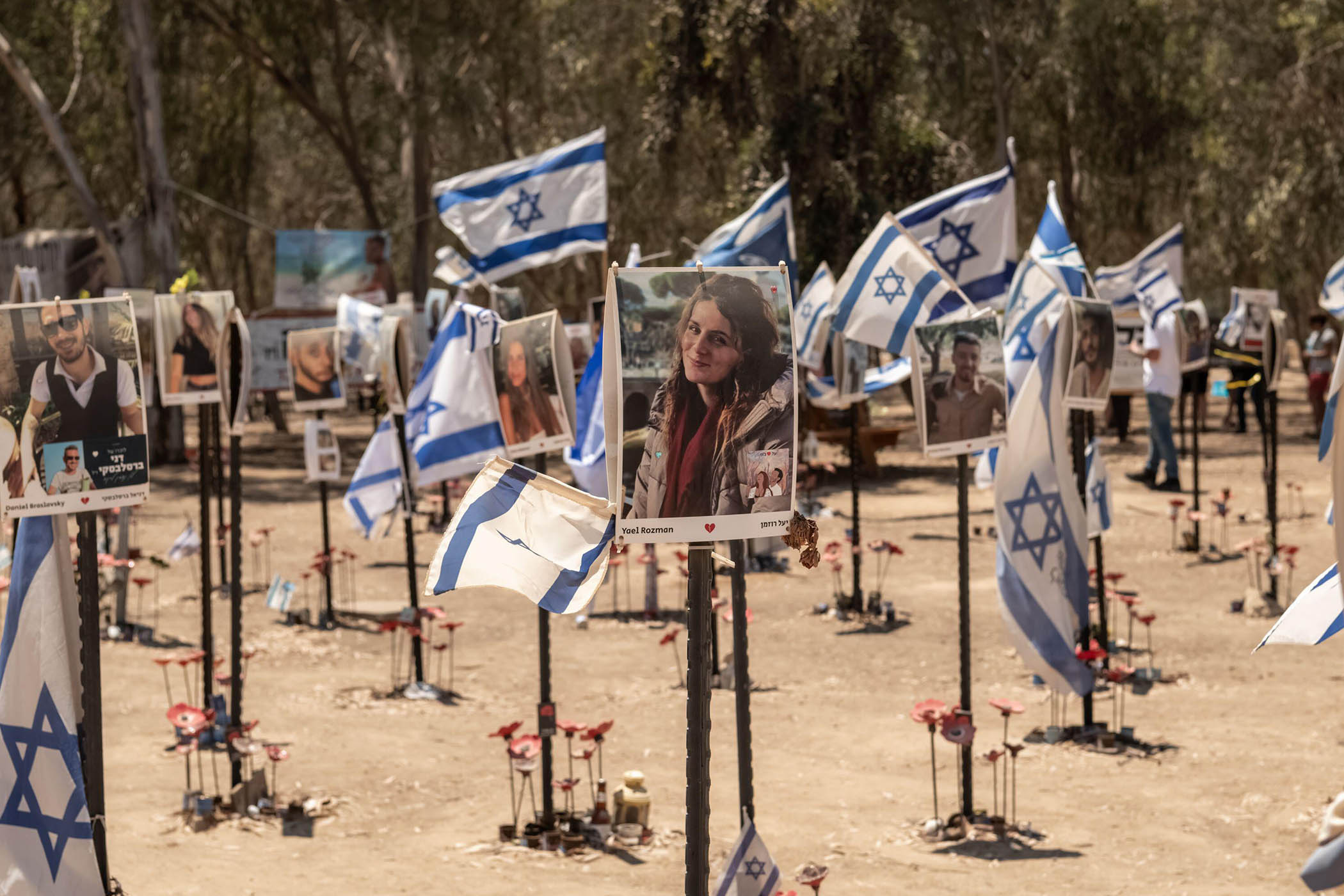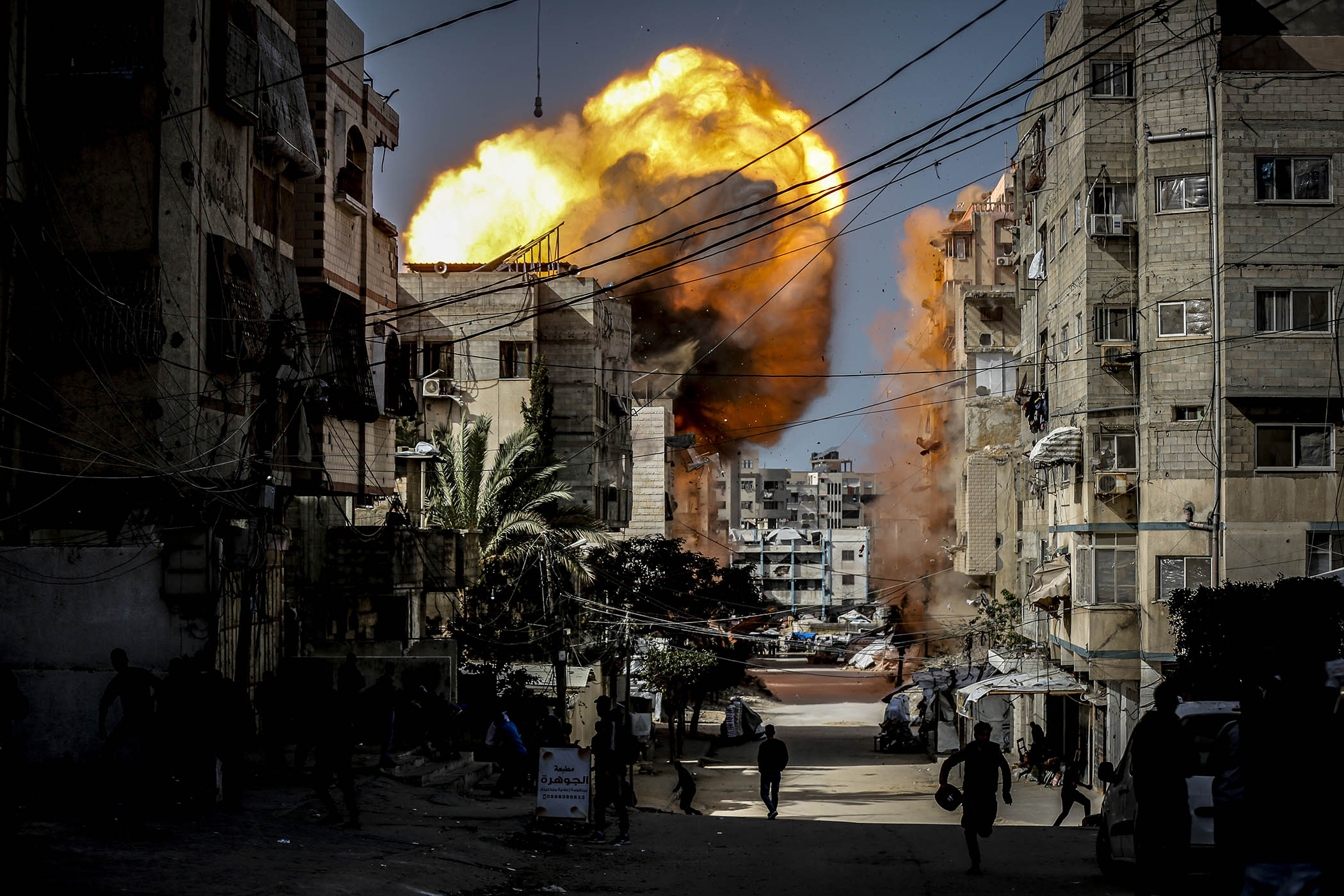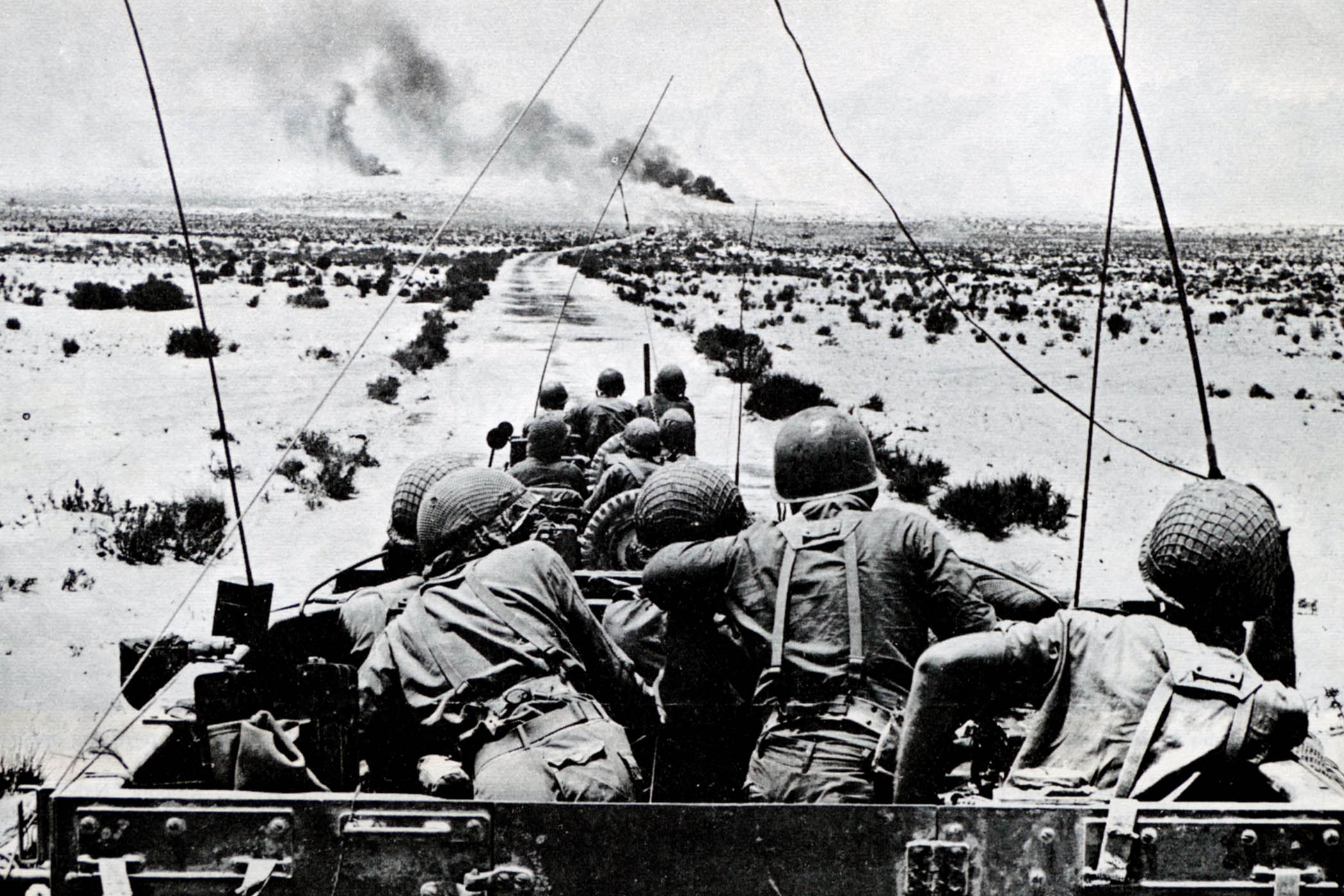This is hard to grasp, but it’s been two years since 7 October 2023. Twenty-four months of dread and fury, 104 weeks of speeches about being a step away from total victory, 730 days of death and bombings and starvation. Time flies when it’s standing still. Only two years ago, an entire nation watched helplessly as a nightmare emerged from the darkness, and now here we are. Instead of awaking from that chilling dream, we are living it as a perpetual, murderous reality – our new routine.
Two years of opening our eyes every morning to another day of hostages caged and starving in underground tunnels; another day of bombings, death and deprivation for men, women, children and the elderly in Gaza; another day of newspapers reporting the names of dead soldiers, continually expanding the vast circle of bereavement that threatens to swallow up everything.
On the beaches of Tel Aviv, the bodybuilders and paddleboarders keep up their rituals while distant sounds of explosions wash ashore like messages in bottles – muted news from Gaza that these beach-goers prefer to ignore. After all, we can’t hear the screaming and crying all the way over here, and faraway blasts make a sound that – as it turns out – the human ear can easily grow accustomed to.
After two years, you can get used to anything. Especially when every passing day is so much like the previous one, and at night we lie awake counting living hostages, dead Gazans, and speeches dripping with hate and fear by a besieged leader who no one believes any more.
At night we lie awake counting living hostages, dead Gazans, speeches dripping with fear
At night we lie awake counting living hostages, dead Gazans, speeches dripping with fear
Today he promises that Israelis will live in a Sparta, waging eternal war, and you don’t have to be a prophet to know that tomorrow he’ll serve up the same dish of venom and dread, the bitter saltiness of sweat and blood, and the persecuted victimhood that has become Israel’s invariable answer to any criticism.
I still remember the day, two years ago minus one week, when I sat in a state of shock on a lawn at a picturesque village. I was surrounded by survivors of the 7 October attacks from communities along Israel’s border with Gaza, who were still struggling to let go of everything that had been theirs only a week before and had vanished in an instant.
I was talking with a young girl whose father had been killed. Her eyes were a deep, dark, bottomless pit, and I remember how my own eyes, wanting only to look, fell into that pit. I also remember how I promised her, in my most persuasive voice, that within a year, maybe less, the black fog she was in would pass. There would still be pain and fear, but only as a memory – a scar that would keep healing. She was just a girl. Newly bereaved. A survivor. And I could see in her eyes that she believed me. That was a long time ago: two years. Back then, even I believed my own words.
I’m writing this piece a week before 7 October. I could have waited, but I’m hoping that by the time it goes to press, it’ll be irrelevant. I say this not with fear, but with yearning.
In my fantasy, I get an awkward email from the opinion editor at the newspaper, explaining that recent political and military events have made my op-ed obsolete: now that a ceasefire has been signed and the Israeli hostages and Gazans are coming home, my despairing laments and grievances are unnecessary.
And now here we are, days before the date, and Donald Trump, self-proclaimed Nobel peace prize nominee, has announced his 20-point plan to end the war, return the hostages, and find a political resolution to the conflict.
Newsletters
Choose the newsletters you want to receive
View more
For information about how The Observer protects your data, read our Privacy Policy
The Israeli stock market is soaring as if the plan has already been carried out successfully, but I’m still clutching at my original column. Perhaps because this isn’t the first Trump plan I’ve seen – who can forget the “Gaza Riviera”? Or perhaps it’s just that most of the 20 points are extremely vague, with no timeline or mechanism for implementation. For instance, will Hamas lay down its arms or will it hand them over and, if so, when? Each of the points only raises more questions and negotiation items, promising that the deadly routine of war is far from over.
While we anxiously track every new headline, the Israeli hostages in underground tunnels and the Gazan civilians in overground rubble will notch another day in their ongoing suffering and loss of life, with the end still nowhere on the horizon.
Etgar Keret’s most recent book is Autocorrect, published by Granta. This article was translated by Jessica Cohen
Photograph by Matteo Placucci/Sipa US/Alamy Live News


